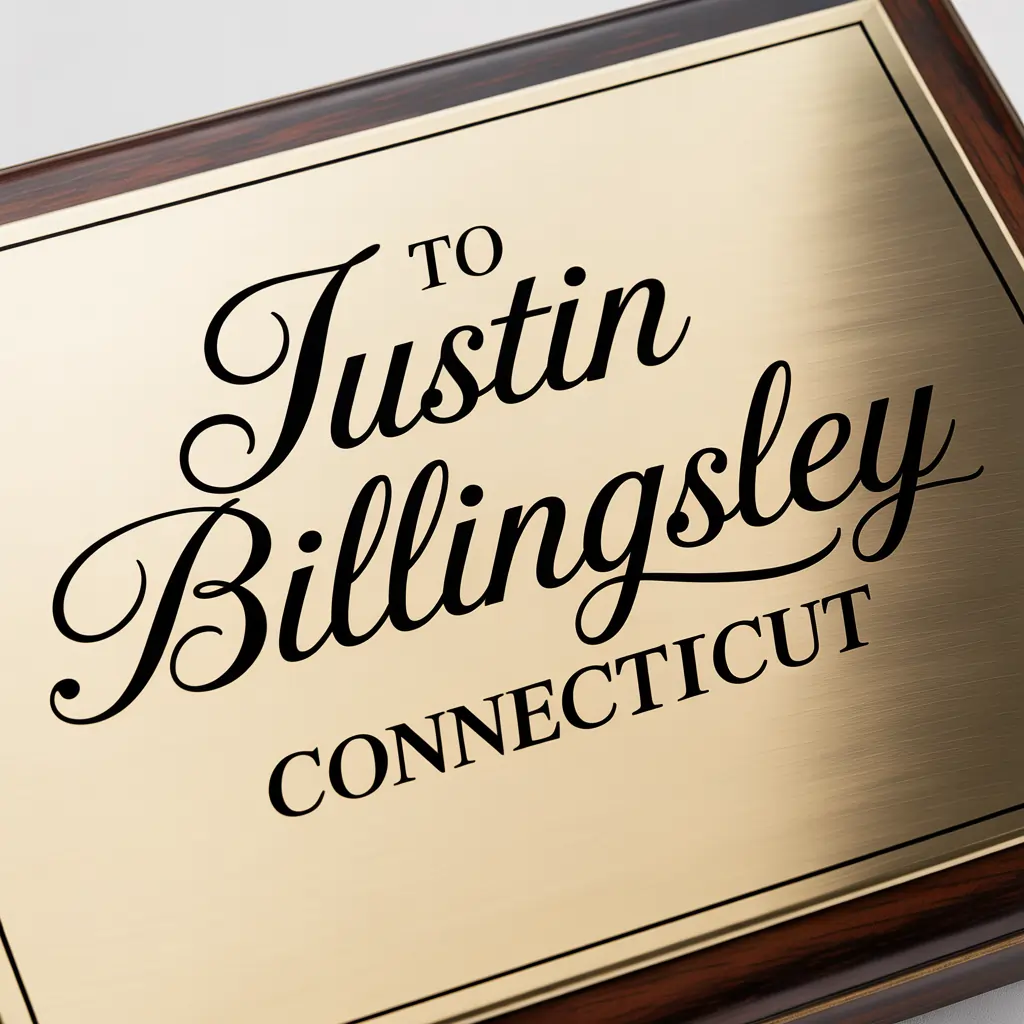Connecticut-based marketing executive and strategist Justin Billingsley Connecticut looks back at years of leadership on a global scale, creativity, and local community focus. This article explores his career path, his thoughts on creativity and AI, what he’s learned about leadership, and how his Connecticut roots have influenced his professional values.
Introduction
When people discuss marketing leadership, a handful of names keep surfacing time and again for creative vision and business strategy. One of them is Justin Billingsley Connecticut, whose career straddles corporate management, creative innovation, and Connecticut soil. He’s run for office on two continents, helped lead some of the world’s most extensive advertising and marketing organizations, and continues to keep his feet firmly planted in a grassroots, community-first mentality akin to where he got his start.
This is not about buzzwords or hype. It’s a real-world look at how one individual’s upbringing and choices forged an advertised identity that feels very much still applicable in an age of A.I.-led marketing amid ever-present business disruption.
From Connecticut to Global Marketing
Billingsley is from Connecticut, a state with fewer ad agencies than academic and financial ones. That early environment appears to have helped shape how he thinks about leadership — by the book, practical but not risk-averse when it comes to creativity. He advanced from regional marketing roles into global executive roles over time.
Based on public profiles and news articles, Mr. Chappet worked with firms such as Procter & Gamble, the telecom company Orange, and Publicis Groupe, one of the world’s largest communications groups. He ultimately joined Publicis’ global leadership team, working in both client-facing and internal transformation roles.
This is not a tale of upward progress. Around 2017, Billingsley departed from Publicis, having held numerous divisional leadership positions over the years. There are reports of a sudden exit, but no scandal that we can actually pin down. What is clear is that he pivoted afterward, spending his time balancing consulting work with local business projects in Connecticut and commentary on creativity, technology, and leadership.
Why He Keeps Popping Up in the Art-and-Artificial-Intelligence Debate
In a Medium post on these thoughts, Billingsley gets straight to the point: Artificial intelligence serving as an aid to creativity is one thing; having machines do people’s thinking is another.
He’s not saying AI is bad. He’s saying it’s a tool — a potent tool — but still a tool. The article cited examples from industries as diverse as film and architecture and design, where algorithms could help generate options or visualize possibilities, but the emotional human element still determined what was good and meaningful.
That’s the kind of perspective that only comes from years inside organizations where data and human imagination continually vie for attention. Billingsley’s argument isn’t abstract. He knows what it looks like when a brand overrelies on automation: rote and efficient, but inhuman.
He also noted several perils — partiality in creative algorithms, automation displacing entry-level creative jobs, and the likelihood that A.I.-generated art will flatten originality. His position is pragmatic, not nostalgic. And if there is one thing that Mr. Tegmark believes, it’s that AI will be here to stay; what people should decide is how they will use it responsibly.
Leadership: Purpose, People, and Performance
Billingsley has discussed his leadership philosophy in multiple interviews and published synopses using three words: purpose, people, performance.
Simple-sounding, but in practice, that means finding the balance of corporate results with moral and emotional intelligence. For him, “purpose” is more than branding language. It means a business should have some sense of why it exists beyond quarterly growth.
“People” is next — forming teams trusted to make decisions, sometimes hard ones, without micromanaging. His colleagues say he encouraged his teams to think big, not just to follow a process.
Then comes “performance.” In his worldview, creativity is only worthwhile to the extent that it also propels real outcomes — sales, engagement, or brand loyalty.
It’s easy to see why this approach caught on. “Marketing executives love discussing creativity or purpose as if they are in different corners. Billingsley unites them: creativity should be with purpose, and its purpose with performance.
Connecticut Still Matters
Connecticut never leaves him, even with a long international career. More recently, he’s been involved in real estate talks, community development, and small-business mentorship in places such as Danbury.
He’s also been linked to Greene Law and other local companies, sometimes appearing in ads or community events. Other reports indicate he has hosted or been a guest on real estate webinars on digital marketing and property branding.
Not work you’d expect from a former global CMO, but that’s the point — he appears to bring big-company thinking to more miniature, local stages. It signifies a move towards deploying experience not merely to climb even further, but also as an instrument to shore up the place from which he’s come.
Leadership isn’t about speeches. His thinking aligns with how people describe his management style: direct, open, and focused on getting work done.
Comparison: How Billingsley’s Career Differs from Typical Marketing Executives
| Category | Justin Billingsley Connecticut | Typical Global Marketing Exec |
|---|
| Career Path | Moved from Connecticut to global corporate roles, then back to local consulting | Usually stays within multinational companies or agencies |
| Focus Areas | Combines AI, creativity, local business engagement | Often focused purely on global brand growth |
| Public Voice | Writes and speaks about ethical tech, mental health, and creative work | Often limits public commentary to brand updates |
| Post-Corporate Work | Involved in real estate, community programs, and digital consulting | Many go into board positions or venture capital |
| Approach to AI | Views AI as a tool that should assist creativity, not drive it | Some lean heavily toward automation for efficiency |
This contrast illustrates why Billingsley is an exception. He’s not just repeating what everyone else in the industry says. And his quietly made choices signal someone who values balance — between corporate life and localism, between automation and human imagination.
What People Can Learn From Him
- A glance at his modeling career reveals a few key teachings.
Stay grounded in values. That goes away for many executives once they go global. He appears to have held onto it. - A partner, not a replacement: technology. He’s right about AI. It’s a tool, not an artistic conscience.
Reinvention matters. He didn’t disappear after he left the corporate track. He transformed his experience into something fresh and valuable for smaller markets. - Community connection builds relevance. Keeping a connection with Connecticut wasn’t nostalgia; it was practical. It gave him credibility and a sense of continuity.
- Leadership isn’t about speeches. His thinking aligns with how people describe his management style: direct, open, and focused on getting work done.
FAQs
Who is Justin Billingsley Connecticut?
A marketing and business executive hailing from Connecticut, he has held senior-level positions at Publicis Groupe, Procter & Gamble, and Orange.
What does he have to do with Connecticut?
He was born or heavily raised there, and he still works on that topic in the state, including consulting and real estate projects.
What are his views on AI?
He thinks AI ought to help creativity, not replace it. What matters is still defined by human emotion and judgment.
What’s his leadership philosophy?
He zeroes in on purpose, people, and performance — three principles that drive how he forms teams and judges success.
So what separates him from other marketing chiefs?
He marries corporate experience with community-level groundwork and prefers a practical, people-centered approach over big-company jargon.
Conclusion
The tale of Justin Billingsley Connecticut, Connecticut, is not just another executive bio. It’s a demonstration of how a professional can navigate the international advertising world, handle technological shifts like AI, and still maintain an anchor in something local that keeps everything in perspective.
He doesn’t have shiny words to describe innovation. He speaks of it the way an ordinary working person might do so — as something that can aid or harm depending on how you employ it. It is that balance, between modern tools and quaint human thought, that makes his voice singular.
And perhaps that’s the larger takeaway: You don’t need to be living in New York or London to matter. The most grounded thinking, as often happens, comes from people who never forget where they come from — whether that is a small town or a small city like New Haven.

